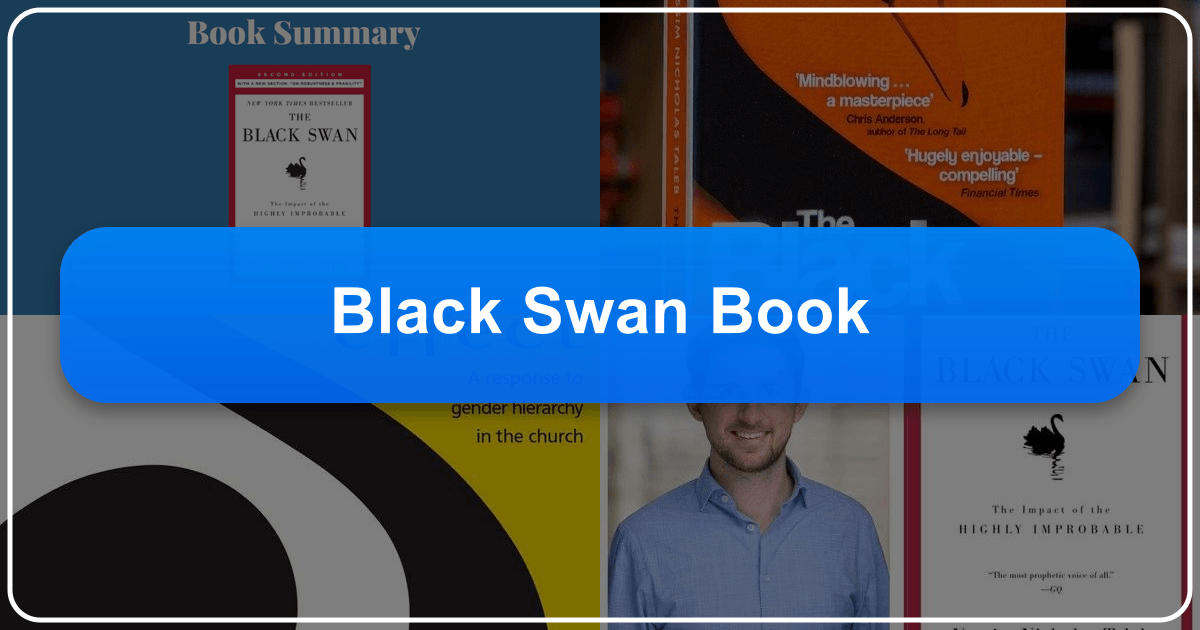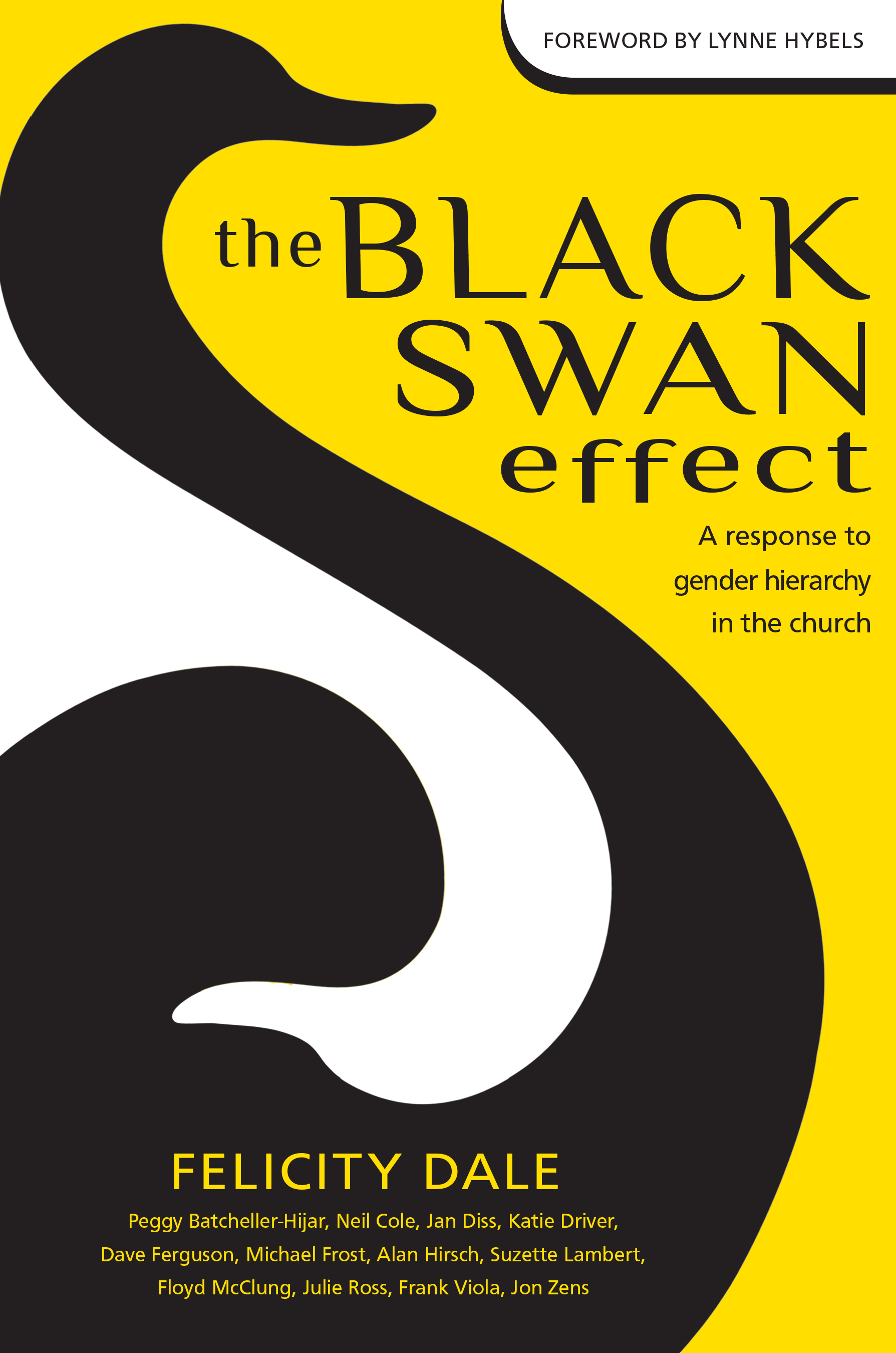The Black Swan: A Deep Dive into the Impact of the Highly Improbable

Nassim Nicholas Taleb’s The Black Swan isn’t just a book; it’s a phenomenon, a cultural touchstone that has reshaped how we understand risk, uncertainty, and the very nature of knowledge. This comprehensive exploration delves into the core concepts of Taleb’s work, examining its impact across various disciplines and exploring its enduring relevance in our increasingly complex world. We’ll explore the book’s main arguments through the lens of several key thematic areas: genres, authors, the process of reading and learning, libraries, and the book’s far-reaching cultural impact.

Genre and Classification: A Multifaceted Exploration
Categorizing The Black Swan presents a unique challenge. While its primary focus is on probability, uncertainty, and risk management, making it a strong contender for the Business & Economics genre, its reach extends far beyond these confines. The book delves into philosophy, exploring epistemology and the limits of human knowledge. Its insightful commentary on the narrative fallacy and cognitive biases firmly places it within the Psychology genre as well. Moreover, its extensive use of historical anecdotes and examples makes it engaging for readers interested in History and even Social Sciences. Finally, the book’s literary style, characterized by its intellectual wit, engaging storytelling, and unconventional approach, makes it a captivating read, deserving of a place within Literature discussions as well.

It’s a bestseller, a fact that in itself exemplifies the book’s central thesis – the impact of the highly improbable. Its sustained popularity is a testament to its ability to resonate with readers across diverse backgrounds and intellectual interests, transcending conventional genre boundaries. Its classification as a classic is steadily solidifying, given its lasting influence and frequent references in fields ranging from finance and economics to philosophy and psychology.
Bestsellers and New Releases: A Continuing Influence
The Black Swan remains a significant presence on bestseller lists years after its initial publication. This enduring popularity underscores its relevance to contemporary concerns about uncertainty and risk. While not a new release in the traditional sense, the updated editions with added content (such as the section on robustness and fragility) continue to attract readers and maintain its status as a must-read.
Book Reviews: A Spectrum of Opinions

Reviews of The Black Swan are as diverse and unpredictable as the events the book describes. While many praise its insightful critique of conventional wisdom and its compelling arguments about uncertainty, others criticize Taleb’s writing style as arrogant, digressive, and overly verbose. These contrasting opinions highlight the book’s complex and challenging nature, reflecting its ability to provoke strong reactions and stimulate intellectual debate. Some reviewers find the sheer volume of anecdotes and tangential discussions distracting, while others see them as integral to the book’s overall message and engaging style. The range of opinions reflects the book’s complex and multifaceted nature and showcases its capacity to challenge readers’ preconceived notions.
Nassim Nicholas Taleb: The Author and His Enduring Influence
Nassim Nicholas Taleb’s personal narrative is intricately woven into the fabric of The Black Swan. His own experiences as a trader, risk analyst, and scholar inform his arguments and give the book a personal dimension that resonates deeply with readers. This biographical element extends beyond simple anecdotes; it serves to illustrate the core tenets of his philosophy, demonstrating the often unpredictable nature of success and the impact of unforeseen events.
Taleb’s Writing Style: A Matter of Debate
Taleb’s writing style is both a source of praise and criticism. His use of anecdotes, philosophical references, and unconventional terminology is considered by some as engaging and intellectually stimulating; by others, as pretentious and unnecessarily complex. His direct, even confrontational, tone, while sometimes perceived as arrogant, is also seen as a necessary component of his critique of established thought. It’s a style that reflects his intense conviction and willingness to challenge conventional wisdom – and as such, it actively shapes reader reaction to his core ideas.
Taleb’s Inspirations and Famous Works: A Broader Intellectual Context
The Black Swan builds upon Taleb’s broader intellectual project, drawing on his extensive knowledge of probability theory, philosophy, history, and cognitive science. His previous works, such as Fooled by Randomness, inform and expand upon the concepts presented in The Black Swan, providing a rich context for understanding his overarching philosophical framework. This intertextuality, referencing a variety of thinkers and scholars, adds to the book’s depth and complexity, albeit sometimes challenging accessibility for less-informed readers.
Reading and Learning: The Educational Value of The Black Swan
The Black Swan offers significant educational value, transcending its specific focus on financial markets. Its core message – that we must acknowledge and account for the impact of highly improbable events – holds relevance for virtually every aspect of life. The book encourages readers to develop critical thinking skills, challenging their assumptions and biases. Its exploration of cognitive fallacies provides readers with the tools to become more aware of their own limitations and avoid making poor decisions based on inaccurate assumptions.
Summaries and Key Takeaways: Simplifying the Complex
Summarizing The Black Swan without losing its nuance is a challenge. However, the key takeaways center on recognizing the role of “Black Swan” events—unpredictable, high-impact occurrences that shape our world. We consistently underestimate their probability, often mistaking a pattern from past events as a predictor of the future. The book highlights cognitive biases that lead us to misinterpret reality and emphasizes the necessity of strategies that prepare us for both positive and negative Black Swan events, rather than solely focusing on prediction.
Educational Value and Life Lessons: Beyond the Financial
The book’s educational value lies in its ability to improve our understanding of uncertainty, risk, and decision-making. It offers practical strategies for navigating an unpredictable world, fostering resilience and adaptability. It teaches us the importance of humility in the face of uncertainty, acknowledging the limits of our knowledge and embracing the unexpected. By questioning our assumptions and recognizing cognitive biases, readers can better manage risk in various aspects of their lives, from financial planning to personal relationships.
Reading Habits and Engagement: A Challenging but Rewarding Read
Engaging with The Black Swan requires a different kind of reading strategy. Its non-linear structure and dense prose require patience and active engagement from the reader. Many readers approach the book in multiple sittings, revisiting certain chapters or concepts to fully grasp Taleb’s complex arguments. The book’s success as a best seller speaks to its ability to nevertheless capture and maintain reader interest, despite its challenges, making it a rewarding, albeit challenging, read.
Libraries: Preserving and Disseminating Knowledge
The enduring legacy of The Black Swan is reflected in its presence in countless libraries, both physical and digital. Its inclusion in academic collections speaks to its importance as a foundational text in fields ranging from finance to philosophy. The book’s accessibility in digital libraries further enhances its impact, allowing a wider audience to engage with its ideas. Its presence in personal libraries and reading lists across different generations illustrates its enduring relevance and impact.
Public Libraries and Digital Libraries: Ensuring Accessibility
Public libraries worldwide include The Black Swan in their collections, ensuring its accessibility to diverse communities. Its availability in digital libraries such as Project Gutenberg (or Lbibinders.org) expands its reach even further, removing physical barriers to accessing and engaging with Taleb’s ideas.
Rare Collections and Archives: Preserving Intellectual History
While not yet considered a “rare book” in the traditional sense, The Black Swan is rapidly becoming a significant component of the intellectual history of the 21st century. Its inclusion in specialized collections of influential works on risk management, economics, and philosophy will solidify its place in scholarly archives and ensure its study for future generations.
Cultural Impact: The Enduring Legacy of The Black Swan
The Black Swan’s cultural impact is undeniable. Its central concept—“Black Swan events”—has entered popular discourse, shaping discussions about risk, uncertainty, and unexpected occurrences. The book’s influence extends beyond popular culture, influencing academic discourse in various fields and inspiring further research on the nature of randomness and uncertainty. Its lasting legacy lies not only in its dissemination of knowledge but also in its enduring ability to challenge conventional thinking and stimulate debate.
Literary Influence and Adaptations: A Broadening Impact
The Black Swan’s impact extends beyond the realm of direct readership. Its core concepts have been adopted and adapted in various creative works, reinforcing its message and broadening its cultural reach. The book’s central ideas have shaped thinking in business, finance, and other sectors, serving as a catalyst for reassessing risk management practices. It has become a common reference point in conversations about uncertainty and unpredictability, showing its strong influence over broader public awareness of the topic.
Awards and Recognition: A Testament to its Impact
The Black Swan has received numerous accolades and recognition, solidifying its position as a significant work in various fields. The accolades demonstrate that the book successfully engaged with the relevant communities and stimulated the necessary conversations, and the reviews are clear in the message that the book itself is an example of a “Black Swan” event – a high-impact, unpredictable occurrence that has profoundly influenced the way we think. Its enduring presence on bestseller lists and in academic discourse is a testament to its impact and enduring legacy.
Communities and Discussions: Sustaining the Conversation
The book’s enduring influence is evident in the sustained conversations and communities that it has fostered. Online forums, academic discussions, and even casual conversations often reference the concept of “Black Swans,” demonstrating the book’s ability to shape discourse and generate ongoing engagement with its core ideas. The enduring conversation that it has generated across multiple online and offline communities actively helps to maintain its relevance and ensures its lasting impact.
In conclusion, Nassim Nicholas Taleb’s The Black Swan is more than a mere book on risk management. It’s a profound work that transcends genre boundaries, challenging our understanding of uncertainty and prompting a reassessment of our cognitive biases and decision-making processes. Its impact extends across disciplines and cultures, leaving an indelible mark on how we interpret the world and navigate its inherent uncertainties. Its ongoing influence, reflected in its continued presence on bestseller lists, its impact on academic discourse, and its enduring presence in popular culture, underlines its status as a truly significant and impactful work.